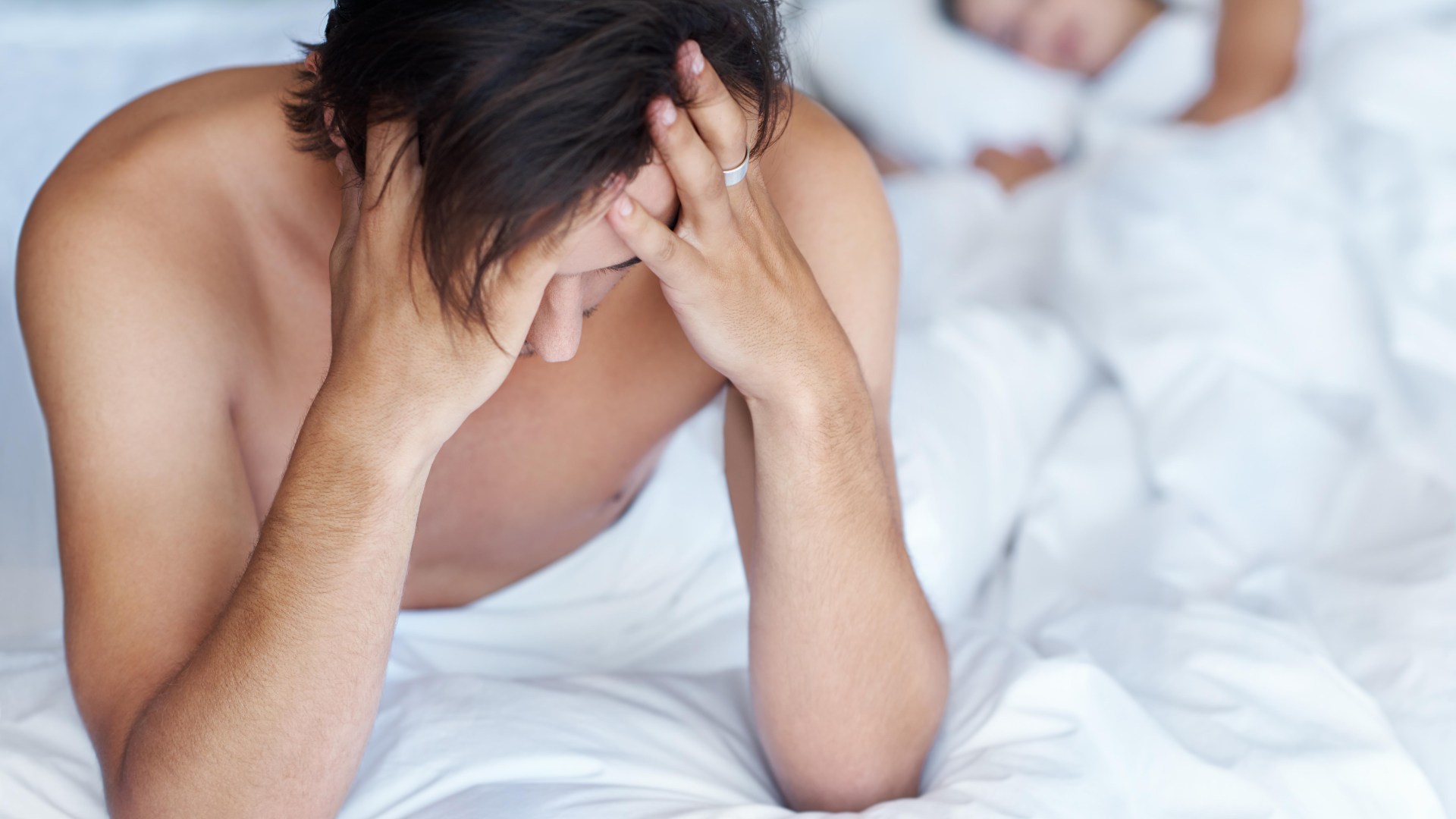CHRISTMAS is a time for love and festive cheer – but things might be a little flat in the bedroom.
Stress, a lack of exercise and drinking too much alcohol can all increase the risk of erectile dysfunction, experts say.
1
Dr Janine David told Sun Health erectile dysfunction is very common.
Research by Eroxon, which makes an erectile dysfunction topical gel, reveals half of men over 40 and more than a quarter under 40 suffer from ED.
Dr Janine said: “Factors like alcohol where intake is likely to rise at Christmas are likely to increasethese numbers even further.
“In fact research by Eroxon shows that 57 per cent of men think that alcohol causes their ED.
“Alcohol interferes with the messengers in the brain and the sex hormones that tell the penis to fill with blood leading to ED.
“Alcohol also dulls the senses making sexual arousal more challenging and causes dehydration which reduces blood flow to the penis.”
Previous research has shown drinking too much can reduce sexual desire and pleasure in men, as well as increasing the risk of ED.
The NHS recommends Brits don’t drink more than 14 units of alcohol — the equivalent of six pints of beer — a week, spread across three days or more.
Dr David said: “If you’re planning to have sex over the festive period make sure you drink no more than two units daily or 14 units a week.
“Aim for some drink-free days and on nights you plan to have sex maybe avoid alcohol altogether.”
Festive dampener
Alcohol isn’t the only risk factor for ED around Christmas.
Dr Catherine Hood, a psychosexual therapist, said the pressures of the festive season can be “a real dampener on sexual function”.
She said: “The pressure to perform in every part of life including sex can be very high at Christmas.
Financial pressures from spending too much can play havoc in the bedroom
Dr Catherine Hood, psychosexual therapist
“Financial pressures from spending too much, the shear stress of getting everything done, rows and disagreements with your partner, pressures to see family members, can play havoc in the bedroom, making it hard for your body to focus on becoming aroused.”
She said you should try talking to your partner about your anxieties around sex so they can help you feel less pressured.
However, one in five men would rather end their relationship than talk about issues like erectile dysfunction, premature ejaculation or loss of libido, a survey revealed.
The survey, of 8,000 adults, found younger men, aged 25 to 34 are the most likely (33 per cent) to end a relationship than speak to their partner, followed by Gen Z males (32 per cent).
Exercise — or a lack of it — is another key risk for problems in the bedroom during winter.
GP and men’s health specialist Dr Jeff Foster said: “During the busy festive season and right through the winter, lifestyles often leave a lot to be desired with heavy, fatty, sugary food, excessive alcohol and lack of exercise becoming the norm for many of us.
“Unhealthy lifestyles increase the risk of obesity, type 2 diabetes, low testosterone, and cardiovascular disease, all of which increase the likelihood of ED.
“Poor blood flow to the penis is the most common cause of ED and obesity, type 2 diabetes and cardiovascular disease can all reduce blood flow to the penis.
“The penis is often a barometer for a man’s cardiovascular health and ED can be an early warning sign of underlying health problem.”
Men should aim to exercise at least 30 minutes a day and eat lots of fruit and vegetables to reduce their risk, he said.
The NHS last year spent £18.3million on prescriptions medications — including Viagra and Cialis — to treat ED.
Dr Jeff said: “Eroxon, a clinically proven topical gel that you and your partner can buy over the counter at the pharmacy and online.
“It works quite differently from other products for ED. You apply it to the penis and it evaporates producing a cooling followed by a warming action with stimulates temperature sensitive endings in the head of the penis and increased blood flow.”
If ED is a persistent problem, see your GP.
ED can be a symptom of underlying conditions like high blood pressure, cholesterol and diabetes.
What are the symptoms of erectile dysfunction (ED)?
Erectile dysfunction is when you are either:
- unable to get an erection
- unable to keep an erection for long enough to have sex
Depending on the cause, you may still be able to get an erection at other times, such as when you wake up.
Sometimes you might also have low sex drive (loss of libido).
Source: The NHS




